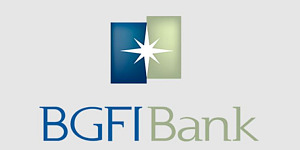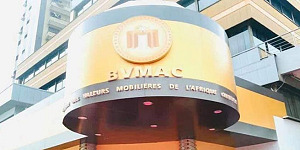Fitch Ratings has downgraded Gabon's Long-Term Foreign-Currency Issuer Default Rating (IDR) to 'CCC' from 'B'.
Fitch typically does not assign Outlooks or apply +/- modifiers for sovereigns with a rating of 'CCC' or below.
KEY RATING DRIVERS
The downgrade of Gabon's ratings to 'CCC' reflects our view that risks to sovereign debt repayment capacity have risen significantly due to liquidity pressure from the fall in oil prices. Liquidity pressures are further exacerbated by Gabon's weak public finance management, as illustrated by the accumulation of arrears on external debt in the past and frequent delays in securing planned multilateral funding.
Fitch expects the fiscal balance to deteriorate to -4.6% of GDP in 2020 from an estimated surplus of 0.2% in 2019 and a previously forecast small surplus in 2020. Revenues will contract by close to 32%, based on our assumption of an average Brent oil price of USD35 per barrel in 2020, and the adverse impact of other measures taken to stem the spread of the coronavirus, less dynamic international trade and delayed government payment of arrears. Flexibility to curb current expenditure is constrained by pressure on healthcare spending from the coronavirus, and limited room for further cuts. However, we project a contraction of capital expenditure. Fitch forecasts public debt/GDP to rise to 73% in 2020 from about 60% in 2019, essentially due to a large contraction of GDP and higher deficits.
Fitch projects total financing needs will reach USD 1.6 billion in 2020, equivalent to about 11% of GDP (excluding the early bond refinancing operation concluded in February), consisting of around USD441 million in external debt repayments, USD508million in domestic debt repayments, and a projected fiscal deficit of USD670 million. The shock to oil revenues and fall in tax collections amid an economic contraction offset a revenue boost from a strengthening of tax enforcement in 2019 and cuts in capital expenditure.
Fitch estimates that Gabon faces a financing gap of USD530 million, assuming full materialisation of expected funds from the existing IMF Extended Fund Facility (EFF, USD126 million) and budgetary support from the World Bank (USD200 million). We also include the remaining proceeds of the February 2020 Eurobond (USD210 million) after completion of a refinancing operation and project loans linked to the government's investment spending, which we expect to be reduced by about 50% compared with budget. In addition, we assume that the authorities will issue a bond on the regional market (USD250 million) and delay the repayment of domestic arrears outside the Club de Libreville framework, which involves the state and a local employer's group in a bid to restructure domestic debt.
Liquidity pressures could become particularly high in June 2020, when USD228 million of domestic and external debt will mature. An additional USD290 million will come due over July-September, with an additional peak of USD228 million in December.
The funding gap could be closed with additional funding currently being sought or negotiated. These could include access to the IMF's Rapid Credit Facility/Rapid Financing Instrument (about USD150 million), a new IMF financial programme, and budgetary support loans from other bilateral and multilateral creditors. Bilateral and/or official creditors could decide to set up coordinated debt relief programmes which could contribute to alleviate funding pressure.
There are substantial execution risks, given Gabon's poor track record of receiving official creditor disbursements in a timely manner even after agreements are reached (which led to the renegotiation of a bridge loan in 2019). As a result, Fitch believes that funding can only be considered secured once the drawdown occurs, particularly in the context of potential liquidity stress.
Gabon has strengthened its public finance management processes, but the new processes remain untested in time of heightened liquidity stress. The authorities set up a single treasury account for public entities in 2019 and all ministries now have to obtain the treasury's approval before spending can be committed, which could reduce pressure on liquidity by improving coordination.
We expect real GDP to contract by 2.1% in 2020, underpinned by a sharp drop in oil-related GDP from lower production volumes and investments in the sector. Non-oil GDP is expected to contract by 1.6% due to a decline in global demand for export products, the impact of the modest measures adopted so far to contain the spread of the coronavirus and capex cuts. Additional near-term downside risks to growth could arise if a lockdown to contain the coronavirus was put in place, as has been done in other countries. Uncertainties also remain regarding the global macroeconomic outlook and the spread of the coronavirus, which could affect tax collections and the balance of payments.
Lower oil prices will result in a surge in the current account deficit to 10.7% of GDP from 1.3% in 2019. CEMAC's pooled international reserves, estimated by the IMF at USD8,169 million at end-2019 (3.3 months of regional import coverage) are likely to drop significantly in 2020, especially if ample additional multilateral funding is not provided in the region. We project the current account deficit to remain large in 2021 at close to 5% of GDP.
We expect a modest rebound of GDP growth to 1.9% in 2021 as global growth picks up. However, oil production will continue to contract as oil fields mature. Pressure on government spending will remain, and exert downward pressure on economic activity. Fitch forecasts a budget deficit of 2.6% in 2021 due to oil prices remaining low, at an assumed average of USD45 per barrel. Fiscal adjustment suffered multiples delays during the 2017-2020 IMF programme and Gabon could face institutional and political challenges to reforms if oil prices were to remain below USD 55-60 per barrel in the medium term.
Financing needs are expected to narrow significantly in 2021, to around 6.5% of GDP from 11% in 2020. Successful disbursements on the expected IMF programme, a regional bond and project finance loans could cover up to 80% of those financing needs.
ESG - Governance: Gabon has an ESG Relevance Score of 5 for both Political Stability and Rights and for the Rule of Law, Institutional and Regulatory Quality and Control of Corruption, as is the case for all sovereigns. Theses scores reflect the high weight that the World Bank Governance Indicators (WBGI) have in our proprietary Sovereign Rating Model. Gabon has a low WBGI ranking at 23, reflecting the relatively weak rights for participation in the political process, weak institutional capacity, uneven application of the rule of law and a high level of corruption.







































